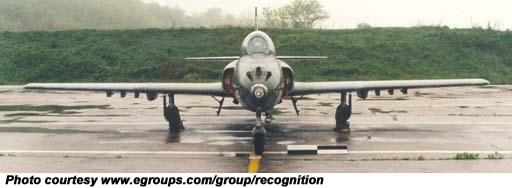|
Black Horse Troop saves Stonewall's life

The 4th Virginia Cavalry
By Lewis Helm
Cavalrymen of the Black Horse Troop were jubilant as their horses splashed across the Potomac River into Maryland at Edwards Ferry. It was early September 1862, and they were fanning out along the front and flanks of Stonewall Jackson's corps, passing Leesburg, Va., and Poolesville, Md., heading into Maryland toward Pennsylvania.

With the victory at the Battle of Second Manassas, they knew that with this thrust they might even be marching along the streets of Washington, bringing the Yankees to their knees. Virginia would be free at last.
Ferocious charge
Only a week earlier, the Black Horse, whose members were the gentry of Warrenton, Va., had split into two sections. One, under their captain, Robert Lee Randolph, led Jackson's corps from the Rappahannock River through the Black Horse's home turf to Manassas, where it took positions on a ridge above the Old Alexandria Turnpike. Lt. Alexander D. Payne's section followed, guiding the way for Gens. Robert E. Lee and James Longstreet to join Jackson, by then embattled with the Union Army. During the movements and battle, the troop shuttled messages among the commands.
Then they helped chase the Yankees back to Fairfax and a whipping on the Chantilly family farm of Black Horse trooper Walker Milan. At First Manassas, they had been dubbed "the Terrible Black Horse Cavalry" for their ferocious charge into the Union Army as it fled between the Stone Bridge and Cub Run, capturing a score of cannons as well as some members of Congress and ladies who had come to observe a Union victory.

Riding with the Black Horse was Charles Randolph, 15-year-old brother of Capt. Randolph. "Charlie" waved his undersized sword at any troopers who were stragglers. Jackson soon sent him to Virginia Military Institute, where he was wounded as the cadet corps fought at New Market later in the war.
Black Horse casualties were minimal at both Manassas battles, although in the second fight, Pvt. Erasmus Helm was mortally wounded while he held the reins of Jackson's horse near the sunken railroad line atop the hill.

Stonewall arrives
Lt. Col. William Payne, their first troop commander, had been critically wounded and captured at Williamsburg in May. Welcome news now reached the Black Horse that he had returned to Warrenton, where he was recovering from a bullet that had fractured his jaw.

William H. Payne - Capt., Black Horse Cavalry; Major, 4th Virginia Cavalry; commanded regiment at Williamsburg, where he was severely wounded and captured; exchanged and returned to duty as Lt. Col., 2d North Carolina Cavalry; led 2d NC at Chancellorsville; captured during Stuart's Pennsylvania raid and imprisoned at Johnson's Island; exchanged and appointed Brigadier General November 1864; served in Valley under Early; during final operations around Richmond commanded brigade under Munford.
As the troopers moved through farms and villages, small groups of cheering women and children gathered. The cavalrymen waved their hats, laughed and bowed to the crowd, which was hoping for a glimpse of the great general. Near Leesburg, a brass band played "Maryland, My Maryland" and the troopers broke into song, one jumping off his horse among a group of mothers and daughters, kissing and hugging as many as he could reach.
Spectators were calling, "Stonewall." Several hundred yards to the front rode a trooper whose companions began pointing to him and shouting, "There's General Jackson." As the crowds cheered, Jackson broke into laughter himself.
When Jackson entered Frederick, Md., on Sept. 6, however, only a scattering of sympathizers ventured forth. Many more waved American flags. The soldiers snarled their displeasure and kept marching while Stonewall passed false information to residents to indicate that Chambersburg, Pa., was his destination.

The Confederates camped at Monocacy Junction near Frederick. Jackson's back hurt because he had been thrown by his horse the day before. He fell asleep while attending a Presbyterian Church that Sunday.
On Sept. 9, the corps crossed South Mountain at Turner's Gap, camping a mile outside Boonsboro, Md., at the home of John Murdock, a Southern sympathizer. The next day, Black Horse Lt. Alexander Payne with a squad of troopers went through the town scouting for Union forces, and Jackson's assistant inspector general, Lt. Henry Kyd Douglas, asked friends with whom he had grown up about river crossings.
Col. S. Bassett French headed to the United States Hotel on Main Street, "desperate for a well-cooked meal and other refreshments," while Pvt. Bernard Green and two other Black Horse troopers went to the hotel lobby for supplies.
'With his usual vigor'
In his memoir, "I Rode With Stonewall," Douglas said, "When we reached that road that leads to Sharpsburg (today's Maryland 34) we heard the clatter of unseen cavalry coming up the other street, and in a moment a company of the enemy were facing us and proceeded to make war on us. We retired rapidly. I tried a couple of ... shots at them ... and they shot a hole through my hat, which, with the beautiful plume a lady in Frederick had placed there, was rolled in the dust. I wanted to stop and get it but thought better of it.
"At the end of town, I discovered ... General Jackson walking slowly toward us, walking his horse, swinging his hat alone. At the signal of alarm, he mounted and galloped to the rear.
"Just then T.W. Latimer of the First Virginia Cavalry joined us ... and there was but one thing to do. The enemy was slowing up, as if in hesitation, and we turned upon them and, with a cry of unseen troops, charged them. Suspecting trouble, they fled." He added that Alexander Payne "at the other end of town had heard the firing and raced to the rescue with his usual vigor."
Douglas wrote an account in 1886 for Century Magazine that offended former Black Horse troopers. M.M. Green replied in the Baltimore Sun that Lt. Payne deserved most of the credit for saving Jackson. (Green, as mentioned in historian John Michael Priest's book "Before Antietam: The Battle for South Mountain," had galloped after Payne, dodging gunfire from hostile Boonsboro residents.)
French also left an account that commented on the Payne/Douglas actions: "The Black Horse did gallantly charge the enemy and pursued them out of the village ... and [Douglas] did with knightly chivalry cover the retreat of [Jackson] with [his] own person. Both were gallant actions, and whether the one or the other saved Jackson from capture, that fact, be it as it may, neither adds to nor detracts from the gallantry of either."
Black Horse remained
French had raced from the hotel when he heard the shots. His account said that before he could leap onto his horse, it was shot and killed. Bullets were ricocheting, so he ducked back into the hotel, following a freedman into the cellar and diving to hide in a foul refuse pile. When they emerged, he gave a 10-dollar Confederate bill to the freedman.
One Union soldier had been killed, the commander slightly wounded, and three of their horses had been captured. The Confederates had no casualties, but word came that Helm died Sept. 13, as the armies closed for battle at Sharpsburg.
The Black Horse remained as bodyguards and scouts for Stonewall Jackson, and when he was wounded at Chancellorsville, Va., on May 2, 1863, representatives of the troop accompanied him to his burial.

Lewis Helm is writer in Maryland and a descendant of a Black Horse trooper and is working on a book about the cavalry unit.
FReeper Foxhole Armed Services Links
 
   |







